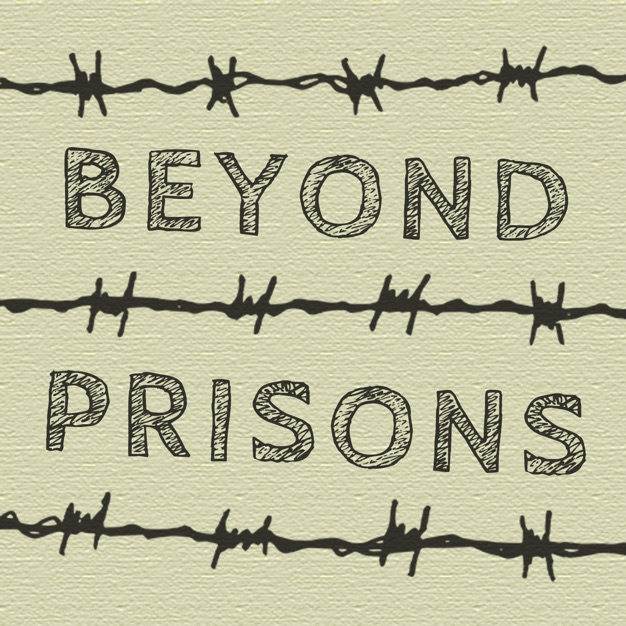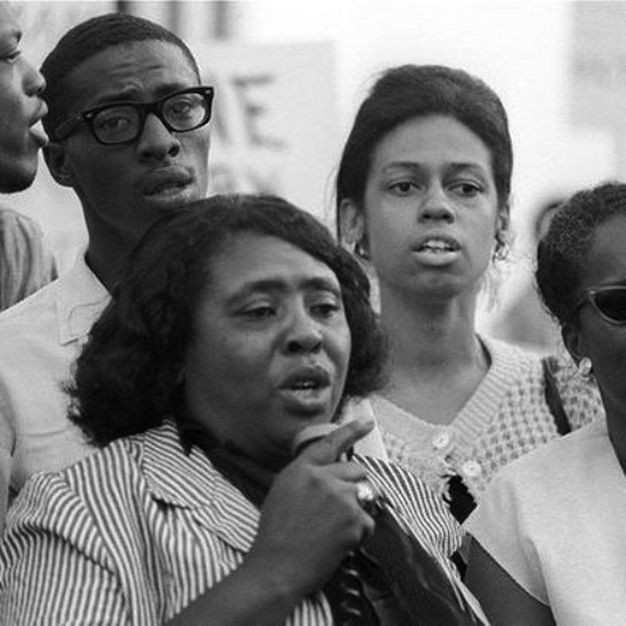
The Appeal
The Appeal
Criminal justice reform, abolition, and everything in between.
- 30 minutes 25 secondsEpisode 65: The Cruel Rise of 'Drug Induced Homicide' Prosecutions
In 2014, then-23 year-old Morgan Godvin sold a small amount of heroin to her friend and fellow drug user Justin DeLong who subsequently overdosed and died. Morgan was charged by the federal government for “drug delivery resulting in death” and served five years in prison––despite Justin’s family pleading for leniency. Now out of prison and majoring in community health education at the OHSU-PSU School of Public Health, Godvin is on a mission to raise awareness of the hyper-punitive rise of “drug induced homicide” prosecutions. She joins us this week along with special guest host Leo Beletsky, a professor of Law and Health Sciences at Northeastern University, to discuss what activists are doing to push back against the latest trend in Tough on Drug Crime cruelty.
27 February 2020, 12:40 am - 34 minutes 26 secondsEpisode 64: Documenting the Death Penalty
Despite hundreds of people being put to death in the United States since the Supreme Court reinstated the death penalty in 1976, surprisingly little data exists on who exactly is killed by the government. Two reporters at The Intercept, Jordan Smith and Liliana Segura, have spent the last three years working on filling the gap in knowledge––collecting and assembling data on how widespread, racially biased, and arbitrary the death penalty remains in 2020. This week, they join us to talk about their findings.
13 February 2020, 11:00 am - 14 minutes 36 secondsEpisode 62: Police Abuse In American Schools
In recent years, the number of police in American schools has skyrocketed as social services have been cut. As of 2016, 1.7 million students are in schools with police officers but no counselors, 3 million students are in schools with officers but no nurses, and 10 million students are in schools with police but no social workers. This invariably has led to abuse and undue arrests of children, some as young as 6 years old. Today we are joined by Appeal contributor Roxanna Asgarian to discuss one case in Pittsburgh that saw a 7-year-old with development issues detained, pinned down and left with PTSD.
6 February 2020, 11:00 am - 24 minutes 5 secondsEpisode 62: Locking Up Women For Killing Their Rapists
In 2018, Brittany Smith was assaulted and raped by a man in her Alabama home. Later that night, when the same man attacked both her and her brother, Smith shot and killed him in what she calls self-defense. Now she’s on trial for murder and her case tells us a lot about how our criminal legal system treats gendered violence. Today we are joined by Appeal writer Lauren Gill to talk about this case and the broader trend of throwing the book at women who defend themselves from abusive men.
30 January 2020, 11:00 am - 17 minutes 24 secondsAppeal Podcast: Reexamining the Science of Shaken Baby Syndrome
Shaken Baby Syndrome (SBS) bas been the subject of countless news specials, TV drama plots, and shocking tabloid headlines––horrific tales of child abuse, quickly met with the firm justice of the state. But in recent years, medical and legal experts have begun pushing back against the conventional wisdom surrounding SBS, questioning its fundamental scientific basis. Today we are joined by Appeal staff writer Elizbabeth Weill-Greenberg to talk about efforts to reexamine many of the assumptions about how our legal system treats SBS cases.
23 January 2020, 11:00 am - 19 minutes 17 secondsEpisode 60: Substandard Healthcare in American Prisons
The only people in the United States the government is required by law to provide healthcare for are the incarcerated. But what constitutes a baseline standard of care is very much in doubt and many human rights activists and legal experts argue the healthcare, namely in states like Illinois and Louisiana, is far below any moral or constitutional standard. Today Type Investigation’s Ida B. Wells Fellow and Appeal contributor Taylor Elizabeth Eldridge joins us to discuss how we are long overdue for a national conversation on healthcare neglect in America’s sprawling prison complex.
16 January 2020, 11:00 am - 38 minutes 18 secondsEpisode 59: The Regressive Pseudoscience of Our "War on Opioid Addiction"
On our last episode of the year we're doing something a little different: Joining us to co-host this week is Appeal contributor Zach Siegel, who’s a journalism fellow at Northeastern University Law School’s Health in Justice Action Lab, to discuss false narratives around drug addiction and how prisons are increasingly employing puritanical pseudoscience in the so-called "War on Opioid Addiction". We will also be joined by our guest, Lev Facher of STAT News.
12 December 2019, 11:00 am - 14 minutes 29 secondsEpisode 58: The Cruel Roadblocks to Getting Innocent People Out of Prison
Last month, 106 legal scholars signed a brief supporting St. Louis prosecutor Kim Gardner's efforts to get a new trial for Lamar Johnson, a man convicted of murder in 1995 for a crime many––including the prosecutor's office that convicted him––say he couldn't have possibly committed. The initial trial, which involved paid witnesses who later recanted and jail house snitches, is now seen as a stain on the St. Louis Circuit Attorney's Office, but pro-carceral forces in Missouri and a system rigged in opposition to obtaining new trials are preventing this from happening. How could something so obviously wrong be permitted by our justice system? Today we are joined by Daniel Harawa, assistant professor at the University of Washington School of Law to explain how our system often makes achieving justice virtually impossible––even when DA's themselves support it.
5 December 2019, 11:00 am - 23 minutes 54 secondsEpisode 57: Imagining a Post-Incarceration World
To those tasked with radically reimagining the U.S. legal system and moving it away from the current carceral, hyper-punitive model, the logical question arises: What do you replace it with? It’s a fair question and one activists and thinkers have been struggling with for decades. One such person, our guest Danielle Sered of Common Justice, has been implementing alternative justice systems in New York City for years. Today she joins us to talk about what another world looks like––and how justice and safety are possible without throwing people in cages.
21 November 2019, 11:00 am - 18 minutes 24 secondsEpisode 56: States Turn To Nitrogen Gas For Executions, Despite Doctors' Concerns
Facing legal challenges and a shortage of drugs for lethal injections, Oklahoma was the first state to announce a plan to use nitrogen to execute prisoners on death row. Mississippi and Alabama soon followed, though none of the states has tried it yet. Critics say the science behind using nitrogen to kill people is spotty at best, and there's no way to know if it will be as "painless" as advocates presume. Today we are joined by Appeal staff reporter Lauren Gill to discuss the questions around nitrogen gas and the continuing search for ways to end human life behind bars.
14 November 2019, 11:00 am - 27 minutes 47 secondsEpisode 55: When Criminal Justice Reform Preserves The Status Quo
There’s a growing acceptance of the idea that we need to overhaul our system of mass incarceration. But methods for doing so vary enormously––and some are causing more harm than good. Today’s guest, Civil Rights Corps founder Alec Karakatsanis, has written a new book, “Usual Cruelty,” that explores how even self-proclaimed “reformers” can be part of the problem and prevent true reform from taking hold.
7 November 2019, 11:00 am - More Episodes? Get the App
Your feedback is valuable to us. Should you encounter any bugs, glitches, lack of functionality or other problems, please email us on [email protected] or join Moon.FM Telegram Group where you can talk directly to the dev team who are happy to answer any queries.
 Beyond Prisons
Beyond Prisons
 LeftPOC
LeftPOC
 Groundings
Groundings
 At Liberty
At Liberty
 Justice In America
Justice In America
 The Red Nation Podcast
The Red Nation Podcast